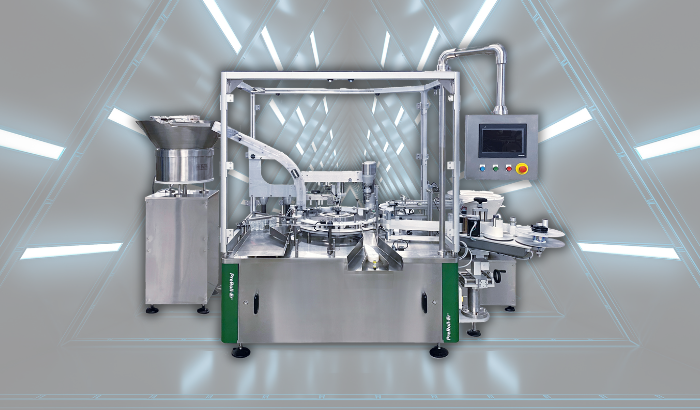
“Even with the best intentions, as regulators, we need to sometimes hit the pause button and look at how we can make these license types more feasible.”
The Massachusetts Cannabis Control Commission is looking to improve its Microbusiness license type, specifically to allow existing license holders in that oft-overlooked category to obtain larger licenses as business expands.
At their most recent meeting, commission members voted unanimously to establish new rules that would allow Microbusinesses to grow with fewer hurdles. The vote only starts the regulatory process, which will include collecting public feedback, possibly adjusting the proposal on the table, and a vote by commissioners before adjustments can go into effect.
The Microbusiness license allows small operators to grow and/or process cannabis into products to resell to retail dispensaries. The license type is exclusively available to state residents (a “majority of the executives or members must have been residents of Massachusetts for no less than 12 months prior to application”), and currently only allows up to 5,000 square feet of canopy space. Among the perks, the designation comes with fewer fees.
“The Microbusiness licenses are intended to make it easier for smaller business owners to enter the market as cultivators, product manufacturers, or both,” Commissioner Kimberly Roy said at the Nov. 16 CCC meeting. “Microbusiness [as a license type] was created with incredible intentions to help folks get into the cannabis industry with a more limited capital outlay than other license types. … It was designed with equity in mind.”
Ed DeSousa, a co-founder of the Newburyport-based Microbusiness RiverRun Gardens, says “the proposed changes are a breath of fresh air.”
Even with the opportunity in play, the commission has struggled to attract and onboard Microbusinesses, with only 11 of them opening since the category was created in 2018. One of the major barriers is that if owners ever want to apply for a larger-scale license, they have to entirely shut down their operation and surrender their license.
“In order to get another license type, you have to wind down your existing operations, and that’s just not realistic,” Roy added. “Folks can’t just put themselves out of business to try to expand. … So even with the best intentions, as regulators, we need to sometimes hit the pause button and look at how we can make these license types more feasible, more successful, and more equitable, quite frankly.”
The Microbusiness license first became available in 2018, but since that time, only 11 applicants have been able to open for business, according to state data. The numbers also show a decline in applications—from a high of 14 over the course of 2021, to this year, with only two Microbusiness applications submitted to the CCC so far. In total, there have been 36 applicants who have not been able to open for business.
Regarding those “capital challenges,” Commissioner Bruce Stebbins said “there may be less interest in this license type without removing some of the barriers.” He asked, “How do we let these licenses grow and expand when they begin to realize success in the industry?”
Despite apparent universal support among CCC members to push the regulation forward, Commissioner Nurys Camargo said there is still room for more discussion. She expressed concern that regulatory change could enable larger companies to take advantage of the system, rather than assist small businesses.
“What I’m thinking about is sort of the reverse,” Camargo said. “Are there non-mom and pop shops that see this as an opportunity to sort of enter in this space and then take advantage of it?”
Since 2020, Microbusiness license holders have also been able to apply for a Delivery endorsement, which “allow the licensee to deliver marijuana or marijuana products produced at the licensed location directly to consumers.” In order to arrive at that change, commissioners spoke with existing licensees who said capital was very difficult to obtain, mostly because restrictions in the category make it hard to scale. As Stebbins noted, investors are less enticed by businesses that have a limited ability to grow.
In order to bring change this time around, any regulatory rewrite or add-on must be first approved by the commission, and then submitted for public comment before a final CCC vote can make the new rules effective.
“This is a firm reminder for the industry that an affirmative vote here today does not change the current regulations,” Stebbins said. “Licensees and applicants must continue to abide by the existing regulations until final promulgation takes place.”
Though there is still work to be done, some Microbusiness license holders are hopeful.
“The proposed changes are a breath of fresh air.” Ed DeSousa, a co-founder of the Newburyport-based Microbusiness RiverRun Gardens, said he and others “have been fighting for this class of license since 2017.” He added, “While it does offer an ability to operate while owning the majority of your company, the restrictions have made it very difficult to pivot with the way the industry ebbs and flows.”
“Producers are the segment of the industry that earn the least amount of revenue,” DeSousa said. “Operating under the current regulations makes it near impossible to survive. It’s about time the micro family received acknowledgement. If the micros fail, so does the dream of craft cultivation and production. We are greatly looking forward to public comment and ensuring these new regulations pass.”

























